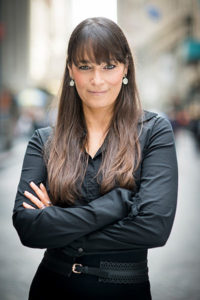By Shira Gould || Staff Writer

Deborah Bial, the Founder and President of the Posse Foundation, came to Common Hour on Thursday, April 6, to facilitate a discussion about diversity in the workplace and in America as a whole.
The Posse Foundation began in the 1980s as a way to allow students to form diverse communities within their lives at school. Posse scholars are leaders who are dedicated to the college experience and betterment of the world. Bial explained that she began the organization when one student who had dropped out of college told her that college would have been a great experience had she had her “posse,” and thus Posse became the name of the organization. Posse forms a community which is beneficial to both its members, and those who are not members, but live amongst them. Posse scholars are charged with the mission of bettering their campuses both by attaining leadership positions themselves and encouraging others to do so as well. The scholars are ultimately responsible for leading by example.
Bial began her talk by asserting that the room would be a safe space despite the heavy discussion that would take place. She wanted the talk to be interactive. Shakeyla Flores, a junior from Posse Miami, facilitated the discussion. First, Flores asked what the goal of the Posse foundation is. Bial stated that the mission is to establish a leadership network which accurately reflects the diversity of America. Bial presented a slide show which contained images of political events that have occurred within the past couple of years including political ads, protests, and the election of leaders. She also presented a slide show which broke down the demographics of major leadership entities in America like CEOs of Fortune 500 companies, senators, congress people, and college graduates. The vast majority of each of these leaders are white men. For example, according to Bial, of the CEOs of the Fortune 500 Companies, six are black, ten are Latino, and twenty-four are women. Likewise, 93% of senators are white and 83% are men. Bial stated that this lack of diversity does not accurately portray the demographic makeup of America, where in major cities white men are not the majority. Flores then asked Bial to discuss the new administration, which Bial stated reflects the fact that America is not yet a post-racism society.
Bial implemented a human survey activity towards the end of her talk. Each chair in the auditorium contained a blue card and a yellow card. Bial asked a question, and charged the audience to raise one of the cards if it applies to them. First, she asked that anyone who experienced or witnessed hate, bigotry, or prejudice raise their blue card. The audience soon became a sea of blue notecards until she asked them to raise their yellow card if the incident did not feel resolved, and the majority of blue card holders shot up their yellow cards. Next, Bial asked audience members to raise their blue if they were afraid of the polarization in American politics. Again, almost everyone raised their card. After a few other questions, Bial opened the microphone up to the audience. Audience members asked questions pertaining to the polarization of America, how to get those who disagree with their point of view to partake in the conversation, and what is the most effective way to get one’s voice heard.
First-year Shira Gould is a staff writer. Her email is sgould@fandm.edu.